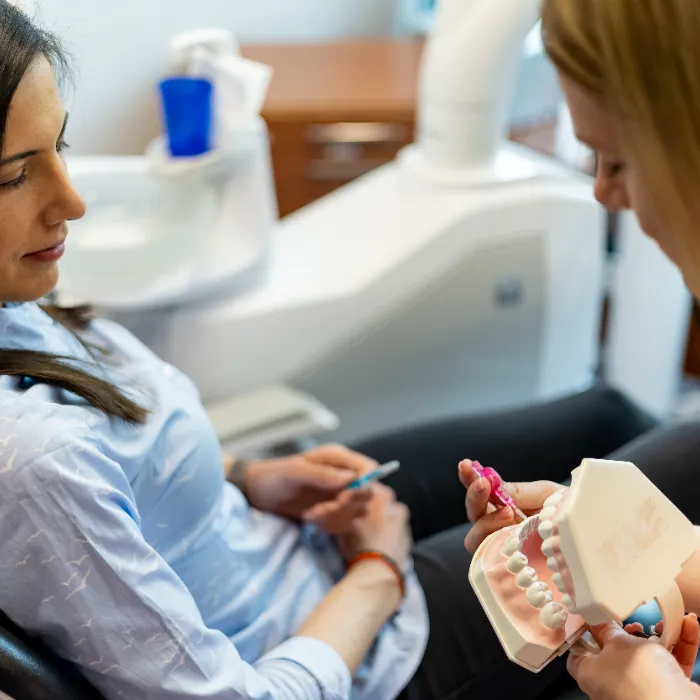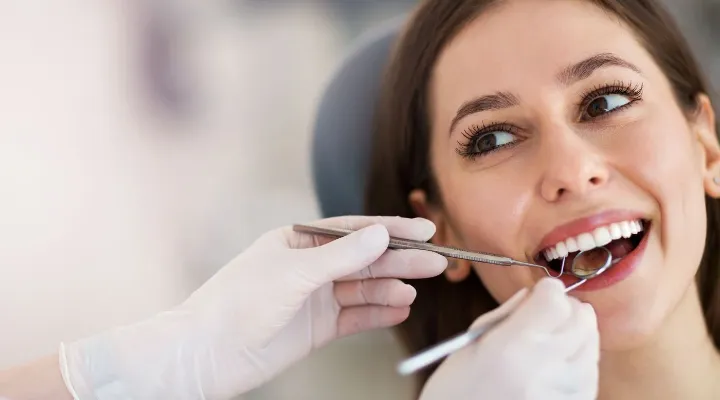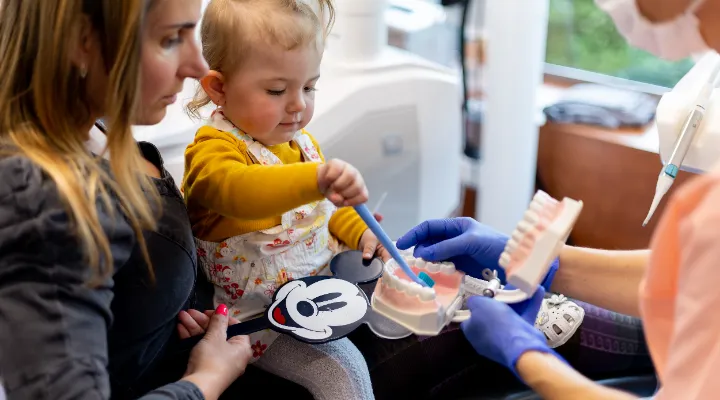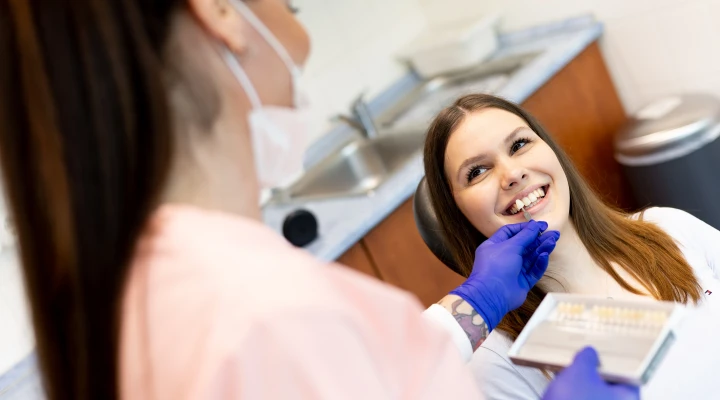The primary goal of these therapies is to slow the progression of the disease by keeping connective tissue structures free of inflammation, thus preventing tooth loss.
When is it advised to see a periodontist?
- if you experience bleeding when brushing your teeth
- if your gums are sore or inflamed
- if you have receding gums
- if you notice bad breath
- if you notice that your teeth are differently aligned, they are migrating
- if we experience loose teeth
What are the causes of periodontal disease?
- gingivitis caused by plaque and tartar build-up on the teeth and gums
- genetic predisposition
- smoking, alcohol consumption
- certain diseases e.g. diabetes
- stress
- vitamin deficiencies, malnutrition
How periodontal diseases are treated:
- The dentist takes a panoramic X-ray first or requests a 3D CBCT scan from the patient if necessary (this imaging procedure is not available currently at RMC, but we can help to arrange an appointment). During the oral examination, he/she measures the depth of the pockets adjacent to the teeth one by one, assesses the condition of the gums and the mobility of the teeth, and draws up an individual treatment plan after comparing all these.
-
After these, all patients undergo an EMS-guided professional biofilm therapy, which involves the removal of build-ups (above and below the gum), together with the remediation of pathogenic bacteria.
-
Depending on the case, it is followed by another deep cleaning (curettage) – sometimes medication or surgery can be necessary.
-
Once the specialist teaches the new, special oral care method to do at home and suggests the right choice of oral care appliances, he/she determines the frequency of further checking and repeating treatments.
The pathogenic bacteria responsible for periodontal disease can predispose to other diseases and inflammations as they can reach the whole body through the blood and lymph stream.
It is more common in people with periodontal disease to develop:
- strokes
- heart attack
- diabetes
- osteoporosis
- rheumatoid arthritis
- kidney or lung tissue damage
- premature birth
- recurrent gynecological or urological problems
- heart valve inflammation
- patchy hair loss
- eczematous skin rash
- loss of joint replacements
- certain eye inflammations
However, it is important to emphasize that with regular check-ups, professional dental care, and proper oral care at home, periodontal disease can be well controlled, and further damage can be prevented.
Any questions before booking an appointment?
If you are unsure which doctor to see or what examination you require, we are here to help!
Simply request a free callback from one of our colleagues, who will help you find the right specialist based on your specific issue.





